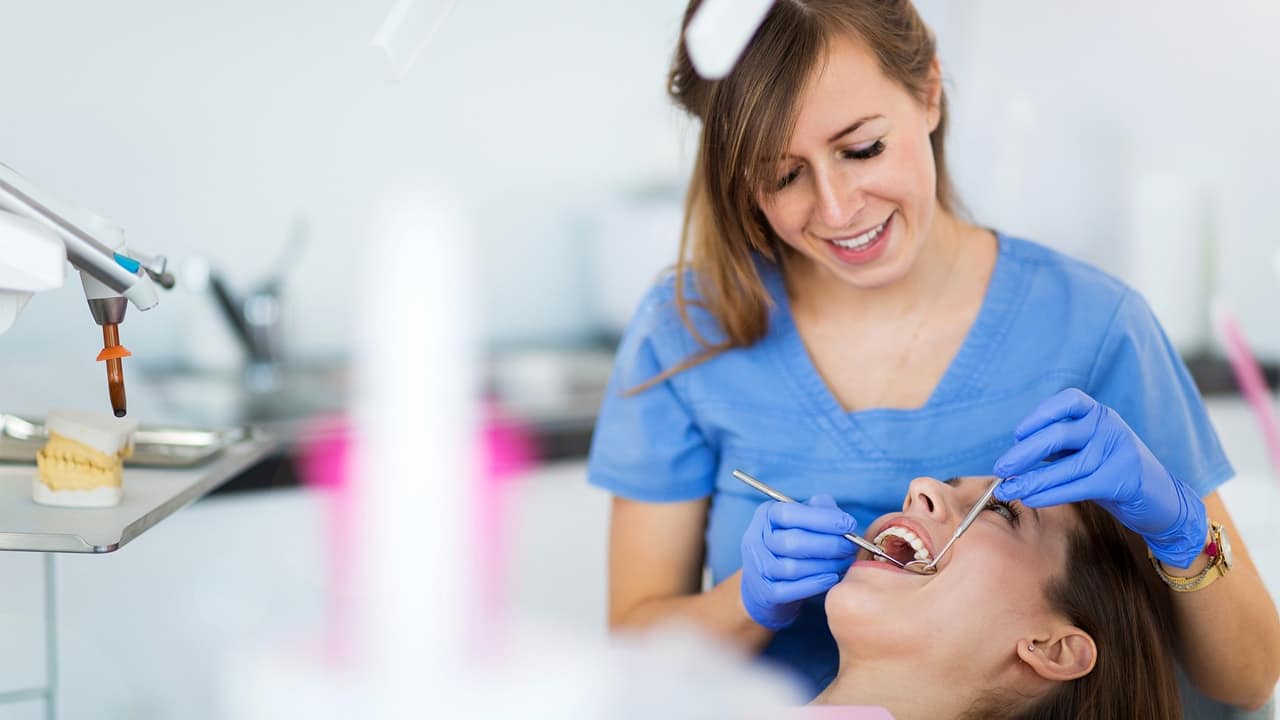
Have you been waking with jaw pain? Do you experience popping sounds when you open your mouth, or even have more frequent headaches? Has your partner complained about your mouth making grinding or squeaking sounds throughout the night? If so, the term “bruxism” may have popped up during a quick Google search. Here are five important things you should know about this condition and how it may affect your oral health.
1. What is bruxism?
Bruxism is also known as teeth grinding, and often occurs during your sleep. This condition causes you to grind or clench your teeth subconsciously, forcing you to exert pressure up to ten times greater than normal chewing. This can lead to a number of health complications including fractured dental enamel, dental sensitivity, TMJ disorders, and even headaches.
2. How do I know if I have bruxism?
If you suffer from nighttime bruxism, it may not be clear right away that you’re suffering from this disorder. Often, a partner will be the first to hear the grinding sounds that accompany nighttime bruxism. You may also feel jaw and facial pain, particularly in the morning. Clenching your teeth can also cause dull headaches and earaches, tightness in the jaw muscles, worn down teeth, and even cracked or chipped teeth. Your cheeks and tongue might also have indentations. The best way to identify bruxism, though, is by getting a diagnosis from your dentist.
3. When should I see the dentist about teeth grinding?
It is important to visit your dentist as soon as the above-mentioned symptoms start to crop up, as bruxism can be quite harmful to your oral health. If left untreated, bruxism can lead to infection or even a dental abscess, as well as broken or loose teeth and TMJ disorders. Luckily, bruxism can often be treated or prevented.
4. How is bruxism treated?
Bruxism is often a result of stress or anxiety, so it can often be helped with improvements to sleep hygiene and lowered stress levels. Another common and successful treatment is the use of a plastic mouthguard. This fits over your teeth while you sleep and prevents your teeth from grinding during the night. Your dentist will be able to work with you to plan a successful treatment for your bruxism.
5. What causes bruxism?
As mentioned above bruxism is often linked to stress or anxiety, but this is not the only cause of teeth grinding. Certain types of medication have been linked to bruxism, including antidepressants known as SSRIs. Those with sleep disorders like obstructive sleep apnea also commonly experience nighttime bruxism as well. Finally, bruxism is often made worse when you drink alcohol, smoke, take recreational drugs, or drink over six cups of caffeinated beverages a day.
The only surefire way to know if you’re suffering from this condition is to get a confirmed diagnosis from a dentist. To schedule your appointment, contact Advanced Family Dental & Orthodontics of Winfield today.